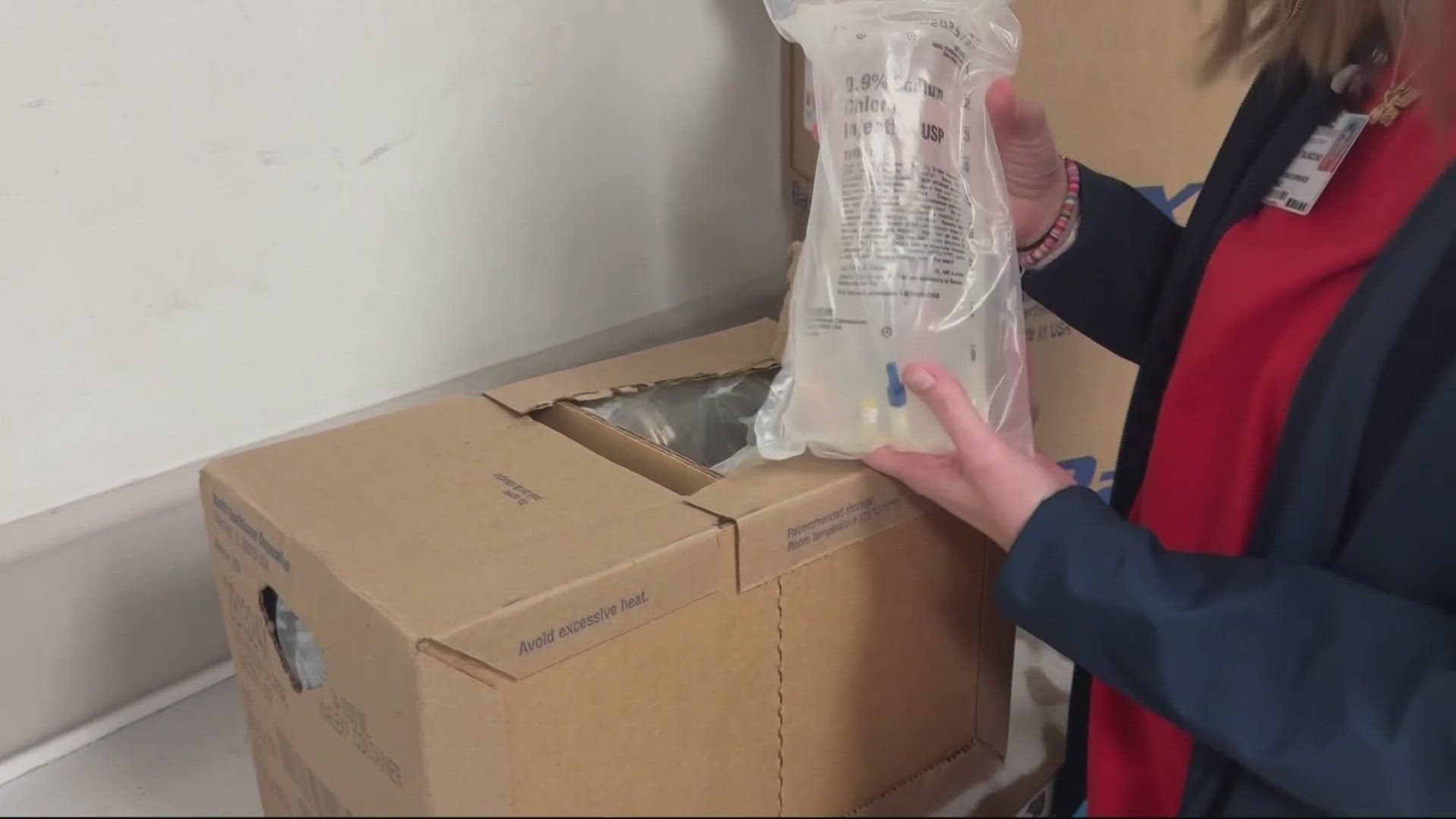PORTLAND, Ore. — Hurricane Helene's destruction continues to make a lasting impact across the country. A national IV fluid shortage is causing some hospitals to reschedule certain surgeries in an effort to conserve what they currently have.
At the end of September, Baxter International, a healthcare company that manufactures products like IV fluid, had to close down production at their facility in North Cove, North Carolina.
In a letter to customers sent on September 29, they announced that water from Helene spread through the facility, damaging some of their inventory and raw materials. They also wrote that there was limited access to the facility as a result of roadway collapse and onsite flooding. Now, the site is on its way to recovering.
Baxter reports that the site is structurally sound and did not sustain structural damage from Helene. Over 2,500 employees are returning to work but focused on ongoing site remediation efforts and testing out equipment. However, despite the facility getting back on track, hospitals and providers are feeling the impact.
The FDA has added three new drugs to the drug shortages database, meaning they are not commercially available in adequate supply to meet national demand due to this setback.
Local hospitals are also feeling the impact. In a statement, Providence wrote that “Baxter supplies Providence with around 130 products, including intravenous and peritoneal dialysis solutions.”
“Providence Oregon hospitals and facilities are employing various strategies to ensure minimal disruption to patient care, including conserving current supply and using alternative fluids and solutions as appropriate," they continued. "Some of our actions to make sure we address all critical and urgent patient care needs will necessitate the rescheduling of some procedures and surgeries. All steps taken to manage this shortage are in alignment with the highest quality and safest care.”
Oregon Health and Science University also has been feeling the hit. In a statement, they said in part, “To ensure we can continue to meet the needs of our community, certain specialties may reschedule non-urgent, elective procedures; changes to care will be communicated directly to affected patients.”
OHSU said that over the last few days and into next week, around 25% of total cases at OHSU have been rescheduled. Non-urgent surgeries and procedures like joint and hernia repair surgeries, as well as bariatric surgeries are some being rescheduled.
They also said that to conserve, they are making changes, like using oral hydration routes over IV routes when possible and evaluating patients for discontinuation of continuous IV fluids when they are no longer needed.
The Hospital Association of Oregon told KGW that Baxter produces 60% of the country’s sterile IV solution.
The Oregon Health Authority has also been assessing the situation and is trying to help.
“OHA is working with hospitals very closely around the state to connect them for mutual aid. And mutual aid is a process by which hospitals and other health care facilities share supplies and resources in times like this,” said Jonathan Modie, the lead communications officer at OHA for their public health division. “Supplies can be moved to other hospitals to ensure that there's really equilibrium."
Baxter announced that starting Saturday, Oct. 19, flights are scheduled to arrive in the U.S. carrying over 100,000 units of Baxter products from international facilities.
Providence and OHSU both said that all patients will be notified directly if there are any changes.

